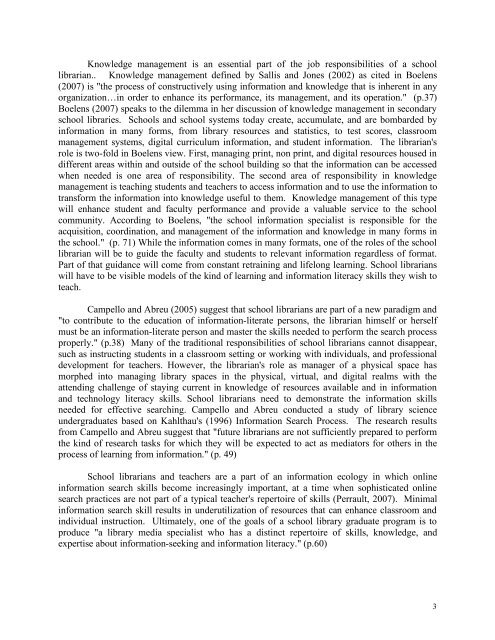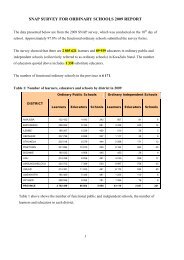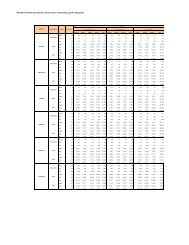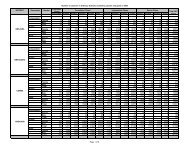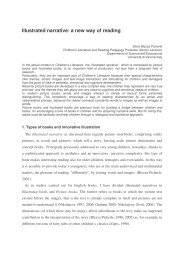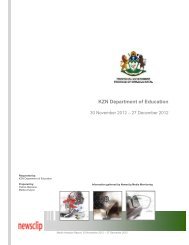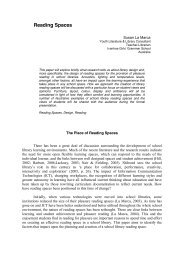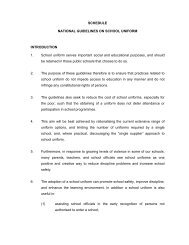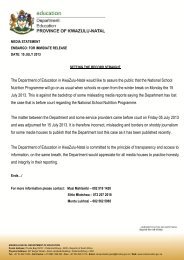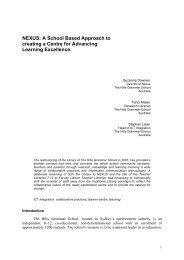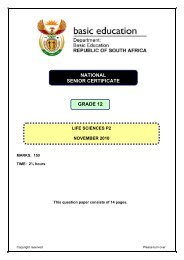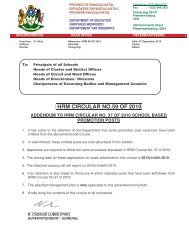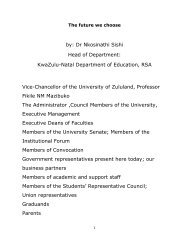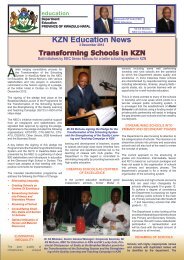Using Technology to Prepare World Class School Librarians to ...
Using Technology to Prepare World Class School Librarians to ...
Using Technology to Prepare World Class School Librarians to ...
You also want an ePaper? Increase the reach of your titles
YUMPU automatically turns print PDFs into web optimized ePapers that Google loves.
Knowledge management is an essential part of the job responsibilities of a school<br />
librarian.. Knowledge management defined by Sallis and Jones (2002) as cited in Boelens<br />
(2007) is "the process of constructively using information and knowledge that is inherent in any<br />
organization…in order <strong>to</strong> enhance its performance, its management, and its operation." (p.37)<br />
Boelens (2007) speaks <strong>to</strong> the dilemma in her discussion of knowledge management in secondary<br />
school libraries. <strong>School</strong>s and school systems <strong>to</strong>day create, accumulate, and are bombarded by<br />
information in many forms, from library resources and statistics, <strong>to</strong> test scores, classroom<br />
management systems, digital curriculum information, and student information. The librarian's<br />
role is two-fold in Boelens view. First, managing print, non print, and digital resources housed in<br />
different areas within and outside of the school building so that the information can be accessed<br />
when needed is one area of responsibility. The second area of responsibility in knowledge<br />
management is teaching students and teachers <strong>to</strong> access information and <strong>to</strong> use the information <strong>to</strong><br />
transform the information in<strong>to</strong> knowledge useful <strong>to</strong> them. Knowledge management of this type<br />
will enhance student and faculty performance and provide a valuable service <strong>to</strong> the school<br />
community. According <strong>to</strong> Boelens, "the school information specialist is responsible for the<br />
acquisition, coordination, and management of the information and knowledge in many forms in<br />
the school." (p. 71) While the information comes in many formats, one of the roles of the school<br />
librarian will be <strong>to</strong> guide the faculty and students <strong>to</strong> relevant information regardless of format.<br />
Part of that guidance will come from constant retraining and lifelong learning. <strong>School</strong> librarians<br />
will have <strong>to</strong> be visible models of the kind of learning and information literacy skills they wish <strong>to</strong><br />
teach.<br />
Campello and Abreu (2005) suggest that school librarians are part of a new paradigm and<br />
"<strong>to</strong> contribute <strong>to</strong> the education of information-literate persons, the librarian himself or herself<br />
must be an information-literate person and master the skills needed <strong>to</strong> perform the search process<br />
properly." (p.38) Many of the traditional responsibilities of school librarians cannot disappear,<br />
such as instructing students in a classroom setting or working with individuals, and professional<br />
development for teachers. However, the librarian's role as manager of a physical space has<br />
morphed in<strong>to</strong> managing library spaces in the physical, virtual, and digital realms with the<br />
attending challenge of staying current in knowledge of resources available and in information<br />
and technology literacy skills. <strong>School</strong> librarians need <strong>to</strong> demonstrate the information skills<br />
needed for effective searching. Campello and Abreu conducted a study of library science<br />
undergraduates based on Kahlthau's (1996) Information Search Process. The research results<br />
from Campello and Abreu suggest that "future librarians are not sufficiently prepared <strong>to</strong> perform<br />
the kind of research tasks for which they will be expected <strong>to</strong> act as media<strong>to</strong>rs for others in the<br />
process of learning from information." (p. 49)<br />
<strong>School</strong> librarians and teachers are a part of an information ecology in which online<br />
information search skills become increasingly important, at a time when sophisticated online<br />
search practices are not part of a typical teacher's reper<strong>to</strong>ire of skills (Perrault, 2007). Minimal<br />
information search skill results in underutilization of resources that can enhance classroom and<br />
individual instruction. Ultimately, one of the goals of a school library graduate program is <strong>to</strong><br />
produce "a library media specialist who has a distinct reper<strong>to</strong>ire of skills, knowledge, and<br />
expertise about information-seeking and information literacy." (p.60)<br />
3


